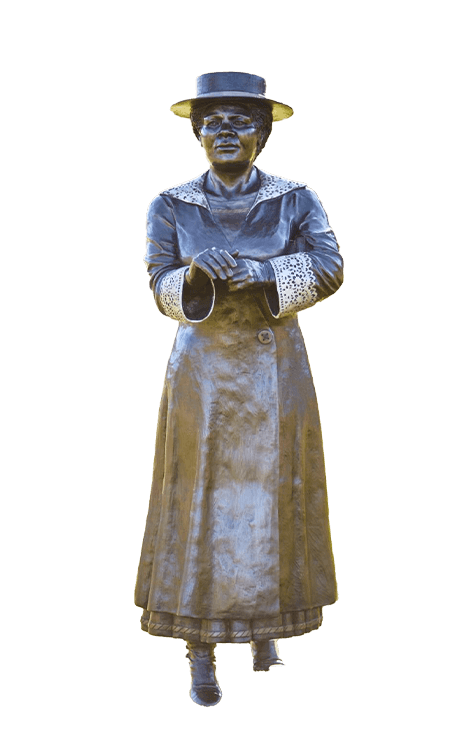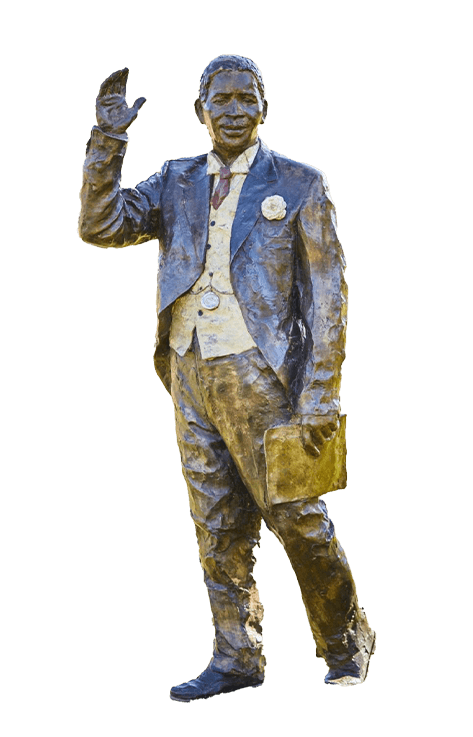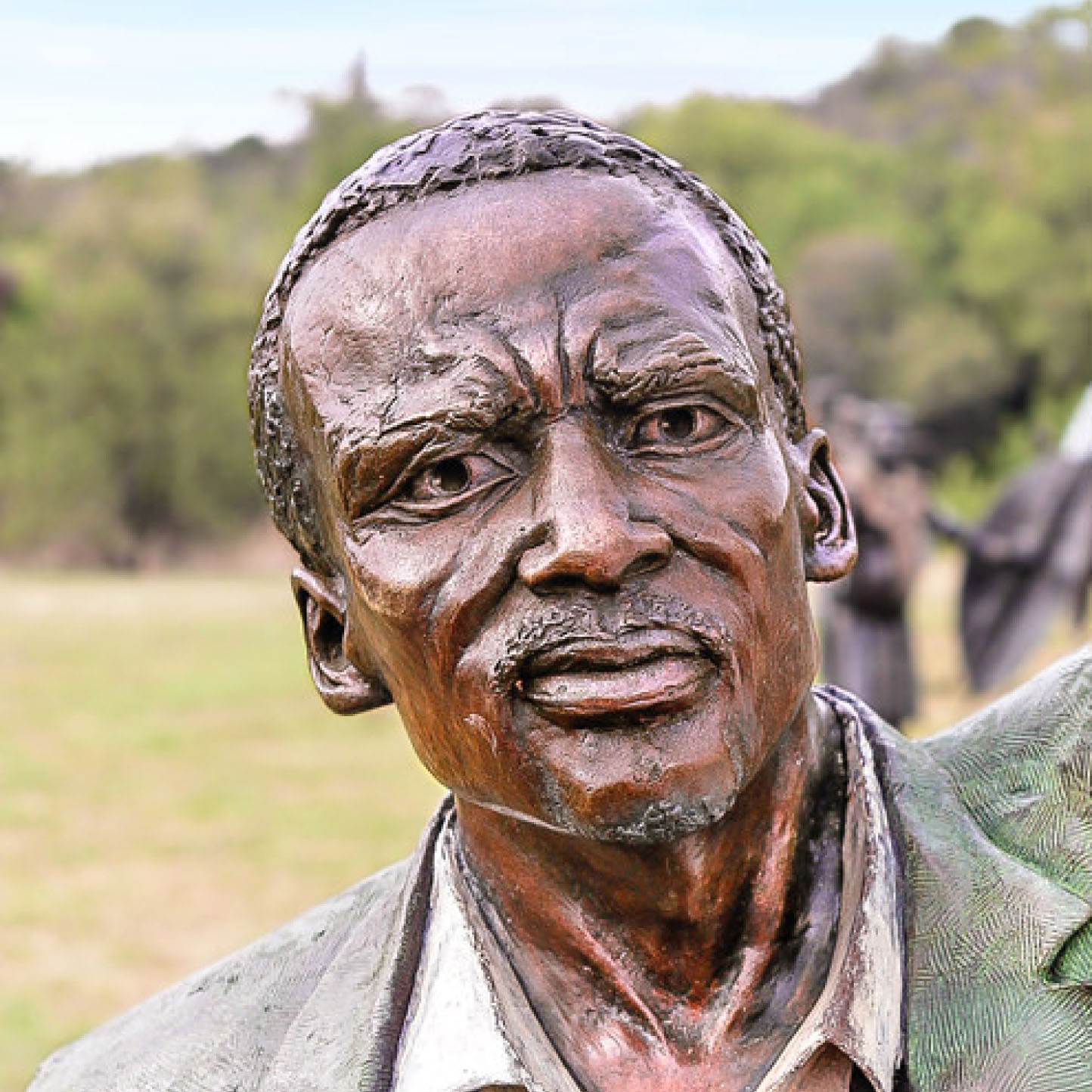
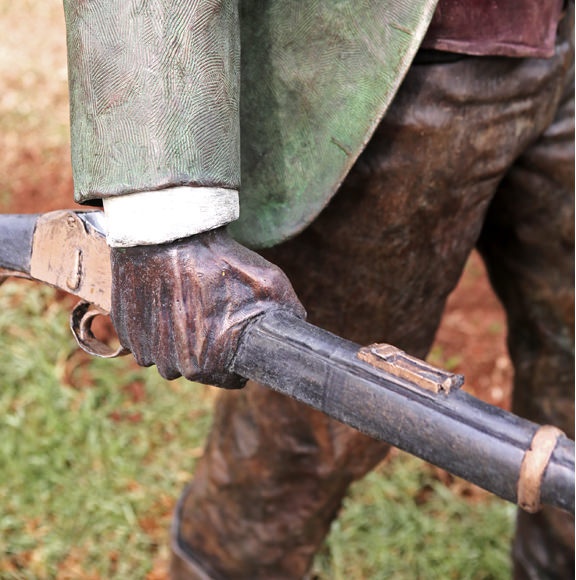
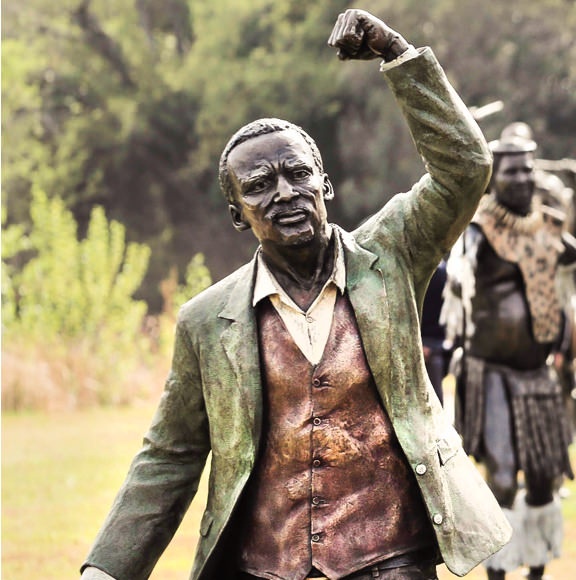
"All through the campaign the poor Malabochians were seldom, if ever the aggressors, their attitude being nothing more or less than gentle protest against what they considered unjust encroachment on their ancestral rights."
- Colin Rae. ‘Malaboch; or Notes from my Diary on the Boer campaign of 1894 against Chief Malaboch’, 1898
Chief Kgalusi Leboho Maleboho
1844 – 1939
Chief of the Bahananwa, Besieged prisoner of the Boers
Chief Kgalusi Leboho, meaning the hand that rules, or Maleboho, lived in the foothills of the Blouberg Mountains near present-day Polokwane in Limpopo in the middle of the 19th century. He began his reign over the Bahananwa in 1879 after his father Matsiokwane was assassinated.
He and his people are remembered for their heroic resistance to the invasions by the Afrikaners of the Zuid-Afrikaansche Republiek (ZAR) under President Paul Kruger who demanded more Bahananwa land, mine labour, livestock and game from the late 1800s onwards.
One of the main conflicts, known as the 1894 Malaboch War, began as a campaign to oust Leboho after he refused to pay hut taxes to the ZAR, choosing to scornfully present two miserable bullocks to the commissioners who were sent to collect his taxes.
From the beginning of May 1894 until the end of July, the Afrikaners under the command of General Piet Joubert laid siege to the Bahananwa in an effort to force them to surrender. For this purpose several forts encircling the Bahananwa capital were built, cutting it off from all water and food supplies. In the end, a combination of scorched-earth techniques, the use of dynamite to blow up the Bahananwa's caves and the siege of Blouberg finally forced the defenders to surrender.
Leboho and some 200 of his councillors were imprisoned in Pretoria. He was found guilty by a military court but never convicted. As many as 800 Bahananwa, mainly women and children, were distributed to Boer participants as slaves, whom the Boers chose to call 'apprentices' - the spoils of war.
During the Anglo-Boer War of 1899-1902, the Bahananwa fought on the side of the British and Leboho, and his comrades were released by the British in 1900. He returned to the Blouberg Mountains to take up a leadership that remained uneventful to his death. He encouraged his men to take part in the First World War.
Incapacitated by blindness in his last years, he died aged 95.
